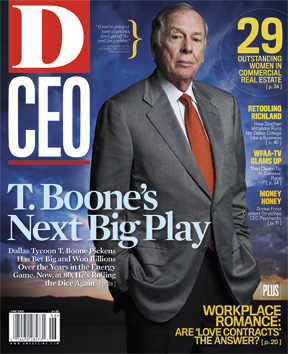It can all start innocently enough—the eyes locking across the conference room table, the flirting by the copier. But what if an office romance turns out to have less of a Hollywood happy ending and more of a love-gone-bad storyline? In that case, it might result in more than just estranged co-workers—it could lead to a sexual-harassment lawsuit. Enter the phenomenon known as the love contract.
THE TAKEAWAY |
| 1. Office romances are increasingly common. 2. Employers can protect themselves in such instances by having employees sign love contracts. 3. Love contracts are no substitute for programs preventing sexual harassment. |
Love contracts are relationship agreements that permit employees to disclose office romances while insulating employers from liability. In our litigious times, their use is on the rise. They’ve even been elevated into the pantheon of pop culture, thanks to the TV sitcom The Office. When Dunder Mifflin regional manager Michael Scott (played by Steve Carell) embarks on an affair with his superior Jan, she insists that he sign such an agreement.
With Americans spending more of their time at work, looking for a love connection at the water cooler has become more commonplace than ever. According to a 2005 survey by CareeerBuilder.com, 56 percent of U.S. employees admitted to dating a co-worker during their careers. Another 25 percent acknowledged dating someone higher up in the company food chain.
To be fair, sometimes Cupid’s arrow flies straight and true. For corporate success stories, look no further than Southwest Airlines. “LUV” proves more than just a stock market designation for the Dallas-based airline, which in 2002 employed more than 1,000 married couples.
But if all workplace romances had happy endings, there wouldn’t be a need for lawyers. Consider these cases from around the country:
>> In Minnesota, a co-CEO pursued a relationship with one of his company’s customer-service representatives; he even had Viagra delivered to work—purchased on the company credit card, no less. When questioned about the alleged affair, he initially denied it, then lied about having ended it. He was terminated for a lack of judgment and professionalism. Although he brought a lawsuit against the company, the court found that he was dismissed on legitimate, non-discriminatory grounds. The court also found that the company could hold the CEO to a higher standard than other employees.
>> In New York, two co-workers got married and continued to work together. All was well until one spouse had a two-week affair with another co-worker. The love triangle led to workplace gossip and a physical confrontation in the employer’s parking lot. The fight was the last straw, and all three were fired. Two of them sued, alleging discrimination. But the court reasoned that the parking-lot brawl was reason enough for the terminations.
Many employers have banned workplace dating entirely or at least prohibited supervisors from dating people reporting directly to them, but these dating policies can backfire. Employees may date and simply not tell anyone about it. If harassment is happening, the victim might not come forward for fear of being disciplined under the no-dating rule.
A workplace romance that ends on a sour note can have all kinds of repercussions. A co-worker who’s been dumped might attempt to woo back the former lover, which could be seen as sexual harassment. Even worse, the employee could claim that the attention was never welcome, and that “consent” was more the result of coercion, fear of being fired or demoted, or in response to a promised promotion or other preferential treatment. With employees on the same level, post-relationship fallout can occur, since one might still have input into the other’s work assignments, performance evaluation, or even the awarding of bonuses.
AN EMPLOYER’S COMPROMISE
Documenting the nature of the relationship can offer some protection against possible claims of harassment. While it detracts from the romance, a love contract (or “consensual relationship agreement”) can set ground rules for office behavior and reinforce the company’s sexual-harassment policies. April Boyer, an employment partner with K&L Gates in Miami, says love contracts may be intrusive, but represent that the employer “recognizes the reality of what might happen, and has to set the parameters. It’s an employer’s compromise.”
In most love contracts, the parties agree to the following:
>> their relationship is voluntary and entirely consensual;
>> they will abide by the employer’s anti-harassment and anti-discrimination policies;
>> they agree to behave professionally and not to allow the relationship to affect their work;
>> neither will participate in decision-making that could affect the likes of the other’s pay, performance reviews, hours, career, or promotional opportunities;
>> they will not engage in public displays of affection or any behavior that could create a hostile work environment, and
>> if the relationship ends, neither will retaliate against the other or violate the company’s anti-harassment policies.
For employees who are on the same reporting level, some love contracts will also contain a provision that neither party will seek or accept a position where one reports to the other. A policy discussing these agreements should be disseminated in the workplace through an internal memo and incorporated into the employee manual.
Requiring love contracts is no substitute for having sexual- harassment training programs. “This isn’t in lieu of a sexual-harassment policy,” says Jeff Tanenbaum, chairman of the labor and employment group at San Francisco-based Nixon Peabody LLP. “This is an additional tool that employers can use to prevent harassment.” Tanenbaum should know; he practically invented the love contract in the late 1980s, and has since drafted hundreds of such agreements for companies ranging from small businesses to Fortune 500 firms.
While proponents of love contracts say they can provide strong evidence of an employer’s steps taken to prevent sexual harassment, not everyone is a fan of such agreements. “Love contracts? Don’t do them,” says Mike Maslanka, managing partner of the Dallas office of Ford & Harrison and the author of numerous articles on employment law. “Don’t get involved in the private lives of your employees. A love contract is not a management panacea and is no substitute for good management judgment. What do you do—get them to re-up, like the military, every six months?”
Dallas human resources manager Kelly Brown adds that while love contracts may sound like a good idea in theory, such agreements don’t eliminate all the risks associated with office romances. “Companies still have an obligation to make sure employees are not subject to a hostile work environment,” Brown says. If a romance sours, she adds, “the company still has an obligation to investigate complaints.” Critics also point out that the very intrusiveness of a love contract can violate the privacy laws of certain states.
Workplace romance is pervasive, and likely to become more so with Gen X and Y employees bringing more relaxed social mores to the work force. Despite this, surveys show that very few organizations have policies that govern workplace relationships. According to a survey of HR professionals conducted by the Society for Human Resource Management, 75 percent reported that their companies had no such policy.
The bottom line for any employer is keeping an organization and its people functioning smoothly and efficiently. While documenting the consensual nature of a relationship through an agreement like a love contract can prove useful, it’s no substitute for having a strong sexual-harassment policy, appropriate training, and a sound enforcement program. Because, after all, Cupid sometimes has lousy aim.
John G. Browning is a partner in the Dallas office of Gordon & Rees, where he handles a wide variety of litigation representing businesses. He can be contacted at [email protected].






